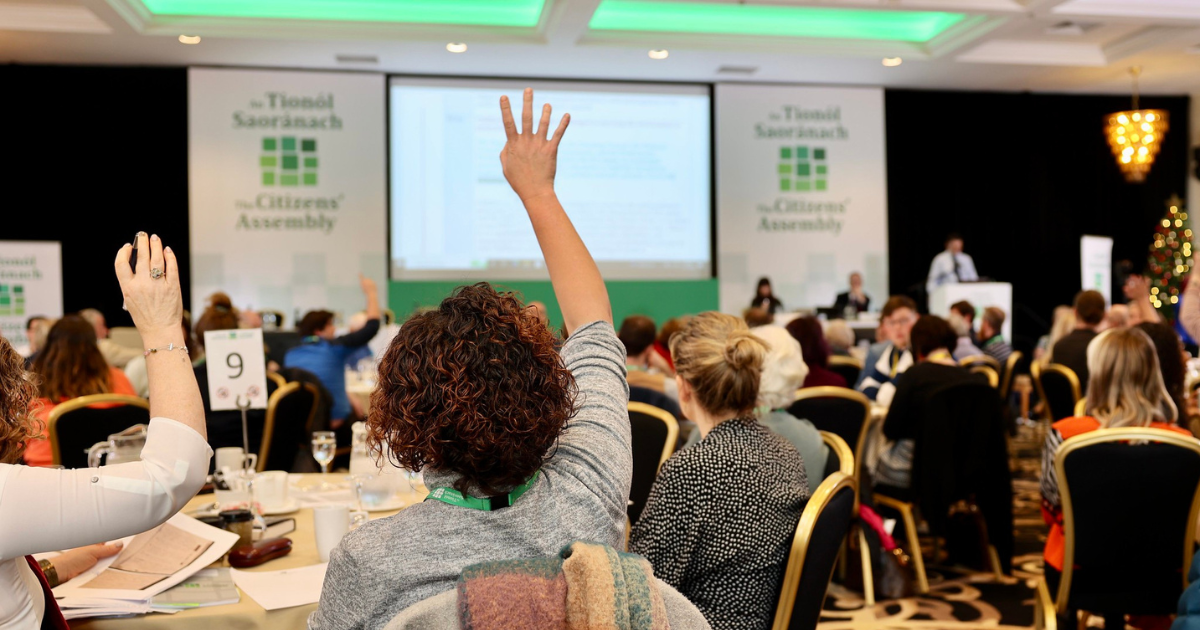A Citizens’ Assembly is a group made up of members of the general public, who have been selected to deliberate on an issue or issues of national importance. A Citizens’ Assembly is established by resolution of the Oireachtas (Dáil Éireann and Seanad Éireann).
The Assembly is made up of people who have been randomly selected and are broadly representative of Irish society. This allows a cross-section of the public to consider expert evidence, hear from people working in the area, examine submissions from interested parties and engage in rational, reasoned debate on complex issues. Arising from this debate, the Assembly will agree on recommendations to be presented to the Government and the Oireachtas. A Citizens’ Assembly typically consists of 100 people, comprising of an independent Chairperson and 99 members of the public, chosen at random.


